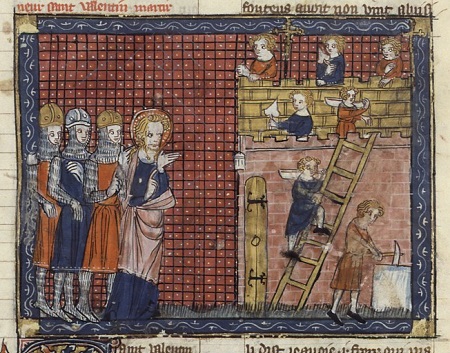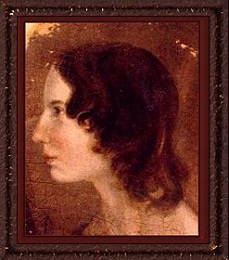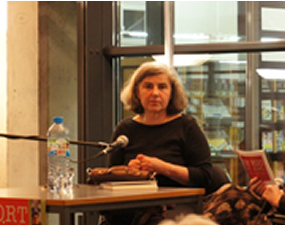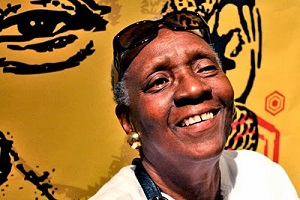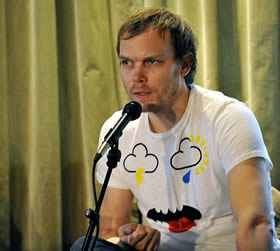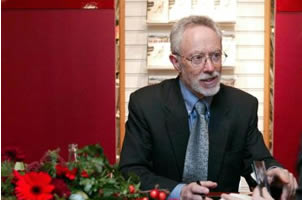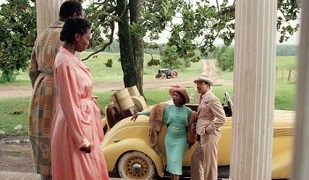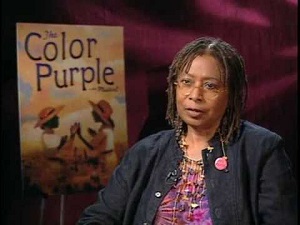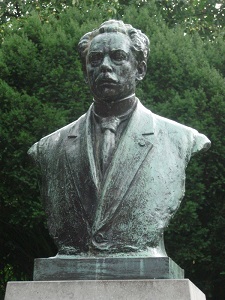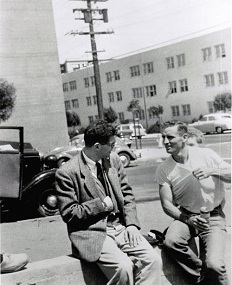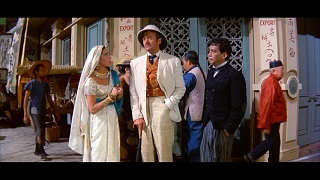De Nederlandse dichteres en psychiater M. Vasalis werd geboren in Den Haag op 13 februari 1909. Zie ook alle tags voor M. Vasalis op dit blog.
Een witte ochtend
Een witte ochtend, eerste dooi
de lucht wit-grijs, egaal gespreid
en aan de lange horizon
welt nu een witte zon.
Geen wind, beweging of geluid.
Er botten waterdruppels uit;
aan iedre tak en iedre struik
zijn knoppen licht.
Een hartstochtsloze en totale aanwezigheid
maakt zich nu kenbaar en het is
of in een diepe adempauze van de tijd,
dichtbij, een pasgeboren kind
zich stil, volmaakt en ademend bevindt.
Eb
Ik trek mij terug en wacht.
Dit is de tijd die niet verloren gaat:
iedre minuut zet zich in toekomst om.
Ik ben een oceaan van wachten,
waterdun omhuld door ’t ogenblik.
Zuigende eb van het gemoed,
dat de minuten trekt en dat de vloed
diep in zijn duisternis bereidt.
Er is geen tijd. Of is er niets dan tijd?
Fanfare-corps
De lucht scheen blinkend door de blaren,
bleek en volmaakt als glas geslepen.
Met vaste manlijke gebaren
werden de horens aangegrepen,
en luidkeels, zonder enig schromen
spoot de muziek tussen de bomen;
heldhaftig, trots. Een onverbloemde
voor elk verstaanbare muziek,
die aan het ademloos publiek
ieder gevoel met name noemde.
En even plots werd dit geklater
gedempt, twee koopren kelen weenden…
– over het donkergroene water
gleden twee smalle witte eenden
geluidloos als een droombeeld voort –
De horens, smekend en gesmoord
schenen hen dringend iets te vragen,
hen volgend met haast menslijk klagen.
Een warm en onverwacht verdriet,
eerbied voor de gewoonste dingen,
neiging om hardop mee te zingen,
en dan te huilen om dit lied
ontstond in mijn verwend gemoed.
Ik voelde me bedroefd en goed.
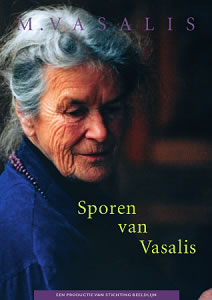
M. Vasalis (13 februari 1909 – 6 oktober 1998)
Cover
Lees verder “M. Vasalis, Jan Arend, Georges Simenon, Nynke van Hichtum, Urs Faes” →
